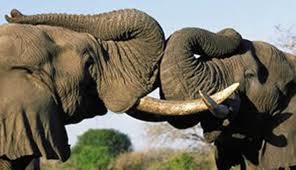
EMPLOYEES in the tourism industry, which includes consumptive activities such as hunters, animal trackers and anti-poachers, have complained about low salaries they are presently earning.
RUTH NGWENYA OWN CORRESPONDENT
Salaries of these employees range from $70 to $240 per month while their counterparts in the leisure activities earn upward of $235 plus $47 housing and $37 transport allowances.
Leisure activities include helicopter flights, bungee jumping, boat cruises and other non-consumptive activities. Edward Dzapasi, a trade unionist who represents tourism workers at the industry level, said the situation was bad and workers were disgruntled.
“Actually that sector is not supposed to be there. I don’t know why it was introduced. It should be merged so that workers can earn reasonable salaries,” Dzapasi said.
“It is disheartening to find a worker in this day and age still earning as little as $70 and $240. Employers say these workers are not very busy, but, for example, anti-poaching is a very dangerous job because these workers are always at high risk of being killed by poachers.
“They deserve to be paid better for doing such an important job of protecting wildlife that tourists come all the way from their countries to see,” he said.

The hunting season does not exceed eight months, but anti-poaching workers operate throughout the year. Dzapasi added that both anti-poachers and hunters go for training and qualify for their jobs.
- Chamisa under fire over US$120K donation
- Mavhunga puts DeMbare into Chibuku quarterfinals
- Pension funds bet on Cabora Bassa oilfields
- Councils defy govt fire tender directive
Keep Reading
He complained that hunters are required to buy their own guns, which range between $3 000 and $7 000, yet they earn low salaries compared to those of house maids, who do not require specific qualifications.
Dzapasi said this year the union could not negotiate on salaries because the government had initiated a no-salary increment directive.
However, Employers Association for Tour and Safari Operators of the Leisure Tourism Industry president Clement Mukwasi said they were aware of the situation and urged workers to bear with employers while the association worked towards finding a solution.
“We are aware of the fact that these people are earning inadequate salaries way below the poverty line. Our ambition is to merge sector two with sector one salaries because sector one salaries are standard and reasonable,” Mukwasi said.
“We do not want companies to pay slave wages and create dissatisfaction among employees, but we want people to earn reasonable salaries as they would have left their homes and families to come to work.”
Mukwasi added that most employers had the capacity of paying more than the current salaries, besides a few anti-poaching units which were nonprofit making.
“Sector Two was formally in the agriculture category before it was concluded that they should be taken part of the tourism industry and their salary level is still the same as that of the agriculture industry,” he said.
“This is a sector that was governed by the Agriculture Employers’ Association and in the agriculture field generally, you harvest once a year so your income is not that much and the employer cannot afford paying high salaries.
“In the agriculture field it would have been fair, but now that they are in the tourism sector and they do not make profit once a year. We are trying to encourage them to stop thinking like people in the agriculture sector and increase these salaries,” Mukwasi said.
He said the hunting sector was incorporated into the tourism industry in 2012 and this was more than enough time for employers to adjust to the systems of the industry.










